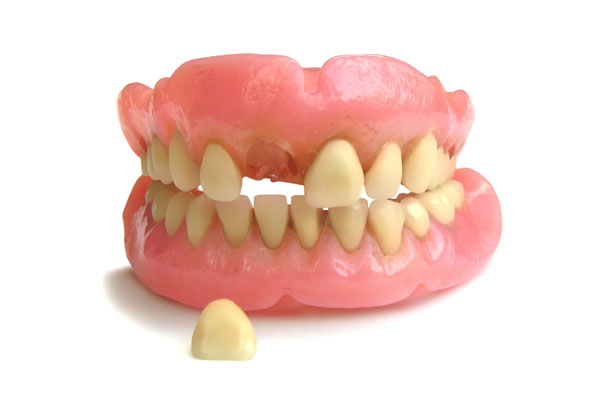How to Take Care of Your Teeth With Gum Disease

In many ways, gum disease acts like a stealthy predator. It stays out of sight, giving only the most subtle hints of its presence. A little soreness here and a little bleeding there, symptoms that are easy to ignore. By the time you notice more obvious symptoms, you may have moderate periodontal disease.
That does not mean that gum disease is the end of the world. It just means that you need to take extra care of your mouth, teeth and gums. Good oral habits are an important part of gum disease treatment.
Taking care of teeth when battling gum disease
Here is how you take care of your mouth when you have periodontal disease:
1. Make oral hygiene a priority
It is worth noting that early-stage gum disease can be reversed with excellent oral habits. Keeping the mouth clean still helps as gum disease progresses. Good oral hygiene keeps harmful mouth bacteria to a minimum. This prevents further infection of the gums.
When a patient keeps their mouth clean, periodontal treatment works much faster. People with gum disease should brush and floss twice a day, or as often as their dentist asks them to. In the middle of the day and after meals, they can keep their mouth clean with:
- Saltwater rinses
- Antibacterial mouth rinse that is prescribed by the dentist
- Drinking water or rinsing the mouth with plain water
2. Develop healthy eating habits
Gum disease occurs as a result of several factors coming together to form the perfect storm. One of those factors is a poor diet, which encourages the proliferation of the very bacteria that cause gum disease.
Combine an unhealthy diet with poor oral hygiene and the mouth becomes vulnerable to gum disease. By staying away from sugary foods and refined carbohydrates, a person with gum disease can deny oral bacteria the fuel they need to multiply and attack the mouth. Other things to avoid are:
- Foods and drinks that are acidic
- Fizzy drinks
- Hard foods that can injure the already vulnerable gums
3. When it comes to medication, follow the dentist's instructions to the letter
Treatment for moderate or advanced periodontal disease usually involves one or more dental procedures. It also involves medication (usually antibiotics) to fight the infection. Anyone that undergoes treatment for gum disease should take their medication exactly as directed by their dentist. Failure to follow instructions could allow the gum disease to progress, or it could lead to a long, drawn-out recovery process.
4. Stay away from tobacco and alcohol
Tobacco and alcohol can cause, or at least contribute to, gum disease. Anyone recovering from gum disease should quit smoking and keep their drinking to an absolute minimum. Infected gums heal faster when they get a break from alcohol and tobacco, which is what a patient would want as they recover.
Get regular dental checkups, as often as the dentist asks you to
As you heal, you will need to check in with a periodontist from time to time. During these routine checks, the dentist will make sure that you are making good progress on your journey to healthy gums. Adjustments will be made if your treatment plan needs any.
Eventually, the periodontist will give you a clean bill of health. They will also tell you to keep checking in so that they can keep tabs on your gums. Call us or visit our New York practice if you are looking for a dedicated dentist who will guide you through treatment for gum disease.
Request an appointment here: https://www.newyorkdentaloffice.com or call New York Dental Office at (212) 548-3261 for an appointment in our New York office.
Check out what others are saying about our services on Yelp: Read our Yelp reviews.
Recent Posts
The purpose of dental restorations is to replace permanent teeth that are lost. This can happen because of trauma to the tooth that renders it irreparable or decay that is so extensive that it requires extraction. There are several restoration options for replacing a missing tooth. Some are removable while others are permanently fixed in…
Dental inlays and crowns are two common restorative options for repairing damaged or decayed teeth. While both restore the tooth's functionality and appearance, they have different purposes and address different dental conditions. Both options are custom-made and provide durable solutions for restoring oral health and enhancing your smile. Understanding the differences between dental inlays and…
Restorative dentistry refers to any type of dental procedure that a dentist performs to restore a damaged or missing tooth. Dental restorations can encompass several procedures that vary in terms of invasiveness, complexity, and what they can accomplish. However, the overreaching goal of all restorative procedures is to improve the health, function, and appearance of…
Dental restorations are for patients with missing, weakened, fractured, or decayed teeth. A restoration replaces or repairs missing teeth or parts of the tooth's structure. If a tooth shows signs of decay or may cause trouble later, dentists can strengthen the tooth to avoid future issues. When it comes to dental restoration, two common types…



